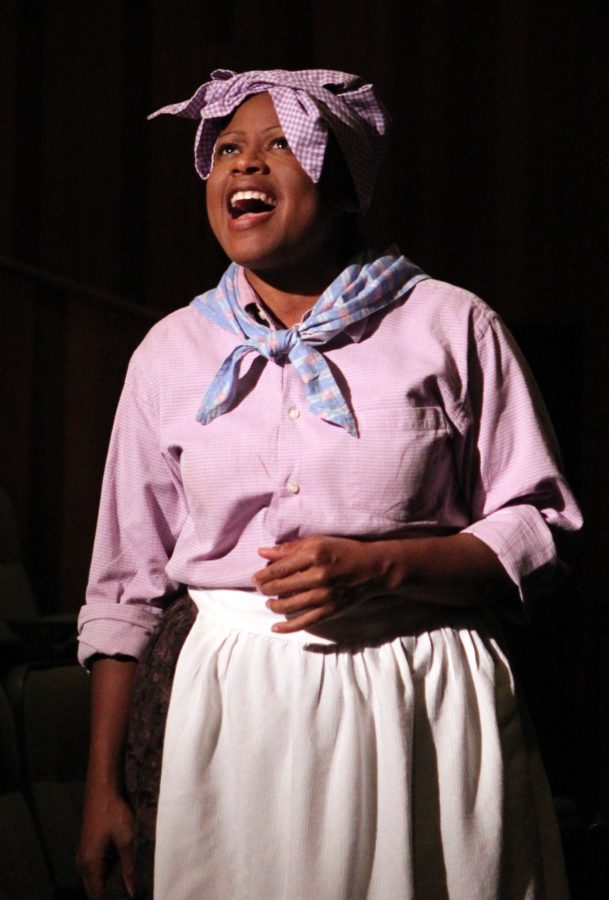SRJC’s 2012 theatre season opened this weekend with Alice Childress’s “Trouble in Mind”, an obscure play about racial tensions in the 1950s both in society and the specific area of theatre acting. Early on, the acting seemed stiff but warmed up in the first minutes of the opening act.
The quality of the acting and singing carried the play’s strong messages, although the staging suffered in the cramped Newman Auditorium.
The production begins with actor Ernie Shoemaker sharing her experience of living in Texas during the time when blacks faced terrible consequences for challenging the limits set on them by whites. Her story brings a unique perspective to the play.
Director John Shillington also added a prologue to give the audience a detailed historical understanding of the play’s setting. While informative, the choice to contrive a classroom lecture atmosphere seemed unnecessary.
The characters arrive at the first rehearsal for a new play intended to help reverse racial intolerance by using black actors as protagonists. Wiletta Mayer, played by understudy Tia Starr, is excited to have a lead role after a long career of mammy parts. However, as the rehearsal gets under way, she realizes her part is yet another caricature designed for white audiences’ expectations. Her challenges against the play’s sleazy director Al Manners (Ronald Fisher) quickly builds tension between the members of the racially mixed cast.
The actors’ speaking patterns felt slightly off at the beginning of the play. The initial interactions between individual actors on stage didn’t feel like natural conversations. The lines felt like more of a call and response than a dialogue. As additional characters made their appearances on stage, the quality of the delivery improved.
The friendship between Starr and Millie Davis (Angela Monique) was apparent from their first good-natured ribbing about each others’ roles playing maids and nannies. Sheldon Forrester (Lawrence Edwards) had a striking change in mannerisms – while content to be a yes-man in Fisher’s presence, he shows his inner fears about Starr’s protests after the white members leave the set.
Three monologues by Edwards, Starr and Fisher overpower the stage in the second act. The powerful messages in the speeches suffer from a dearth of reaction in the cast, made even more striking by their animated performances outside the monologues. For the duration of the speeches, the rest of the cast simply sit or stand around stage in an unnatural semicircle.
The singing was a major highlight. Starr’s heartfelt solo in the first act gives voice to her character’s frustrations. Other songs had actors sing offstage in a spiritual style. The final chorus of “I Got a Song to Sing” showed the characters’ hope for the future.
The limitations of the smaller Newman Auditorium caused problems with the staging. Fisher particularly spends a great deal of time off stage between sections of the audience. Even in his first appearance, he gives most of his lines standing in the dark, not stepping onto the stage until very late into his dialogue. The other issue involves Fisher’s assistant, Eddie Fenton (Trey Saulter). Saulter sits under a distractingly bright light at extreme stage right, calling attention to a corner of the stage devoid of action for most of the play.
Aside from these staging issues and a briefly wooden start, the Theatre Department picked a gem of a play to kick off their season and performed it well.
“Trouble in Mind” is recommended for audiences ages 14 and above. The play is at 8 p.m. Oct. 11, 12, and 13; and at 2 p.m. Oct. 13 and 14 in Newman Auditorium. Tickets cost $10-$15 and are available at the door, at the Box Office (phone 707-527-434) or online at www.santarosa.edu/theatrearts.




